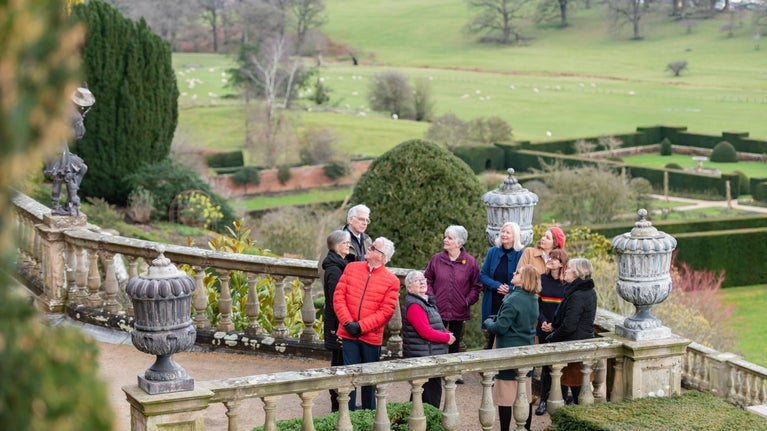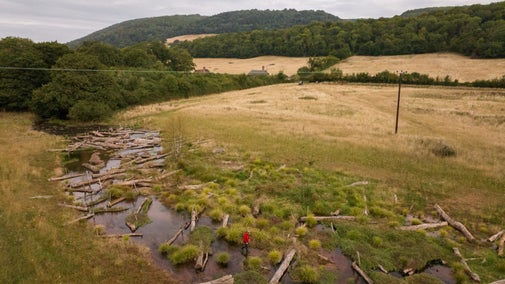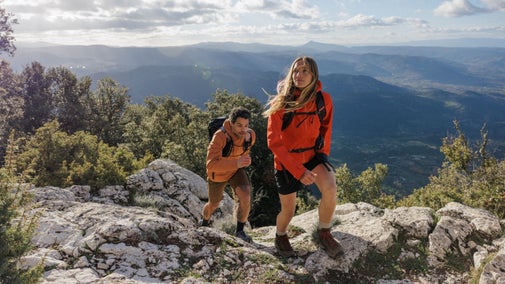

Our corporate partners
We need help to look after the places in our care that benefit millions of people. By working together with our partners we achieve far more than we could alone.
Jump to
Who's supporting our work
How we're working with Admiral on natural flood prevention
We've partnered with Admiral to implement nature-based solutions to improve flood management, transforming degraded bogs into thriving natural sponges and reconnecting rivers to floodplains. We're working together to help reduce flood risk, capture carbon and create habitats for wildlife.

How we're improving access to nature with Starling
We've partnered with Starling to improve access to nature for more than 1 million people and fund vital peatland conservation projects. Find out all the ways we're working with them through our partnership.

How we’re gardening more sustainably with STIHL
We’ve partnered with tool company STIHL who are providing our gardeners with a range of battery-powered equipment to use across the places in our care.

Conserving our collections with CEWE
We've teamed up with CEWE, Europe's leading photo printing company, to share more stories from the thousands of photographs in our collections. CEWE will be sponsoring our new book, 100 Photographs from the Collections of the National Trust, cataloguing our collections and supporting our Blossom campaign.

Cotswold Outdoor: our exclusive walking partner
Learn about the National Trust’s ongoing partnership with Cotswold Outdoor. Find out how they help us care for precious places and the exclusive discount available for National Trust supporters.

How we're working with Forthglade for dog-friendly visits
We've partnered with natural pet food maker Forthglade to create the Dogs Welcome project, helping you and your dog(s) get the most out of the places in our care.

How we're working with HSBC UK to create carbon-rich habitats
Thanks to HSBC UK, we're planting 2 million trees to increase access to nature, tackle climate change, protect landscapes and attract more wildlife.

Working together for a dementia-inclusive future
We’ve partnered with Alzheimer’s Society on an ambitious collaboration to make all the historic and countryside places in our care dementia-friendly.

Contact us
Get in touch to discuss how we could work together by emailing the partnerships team.
